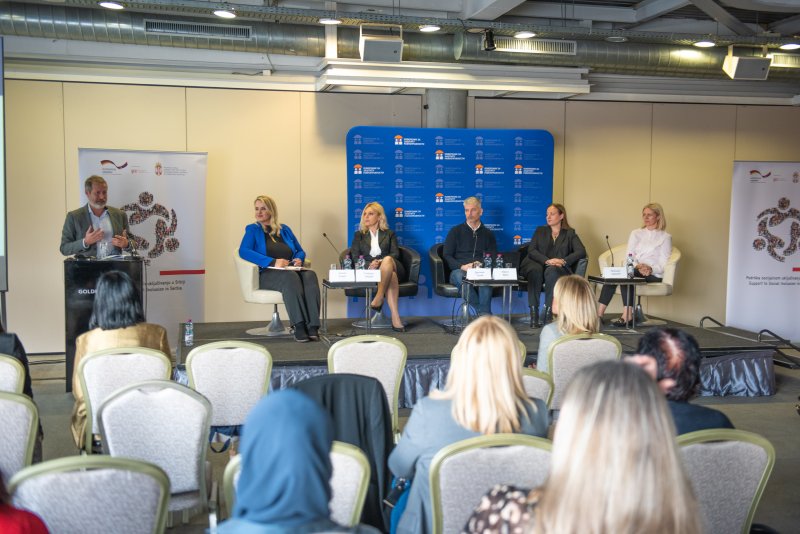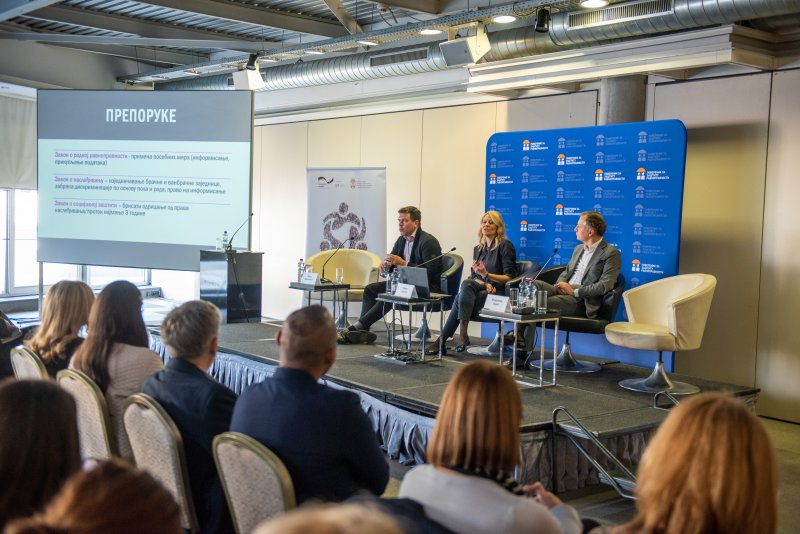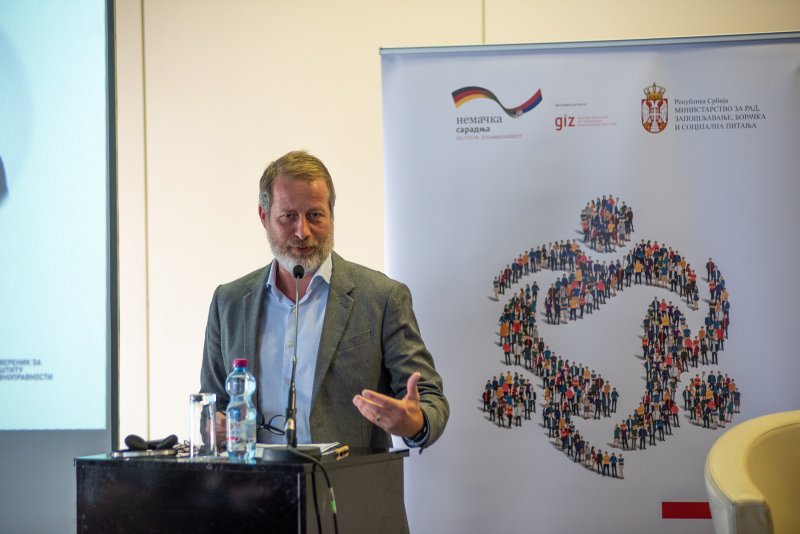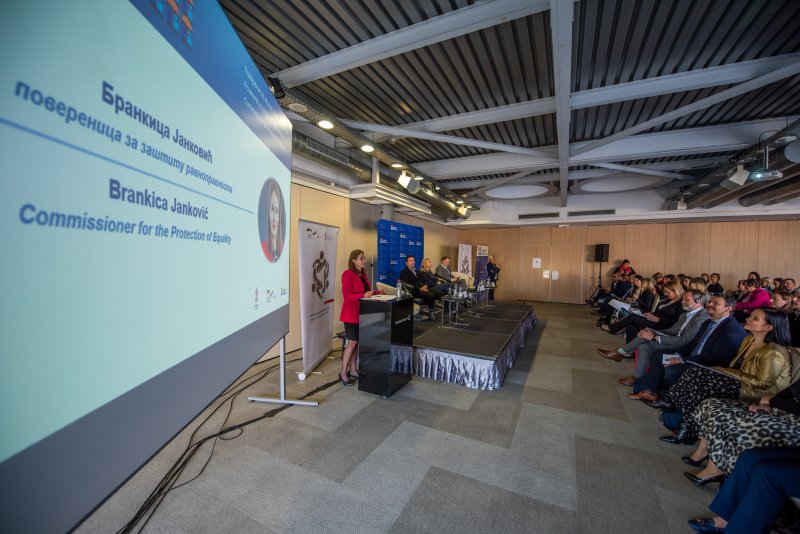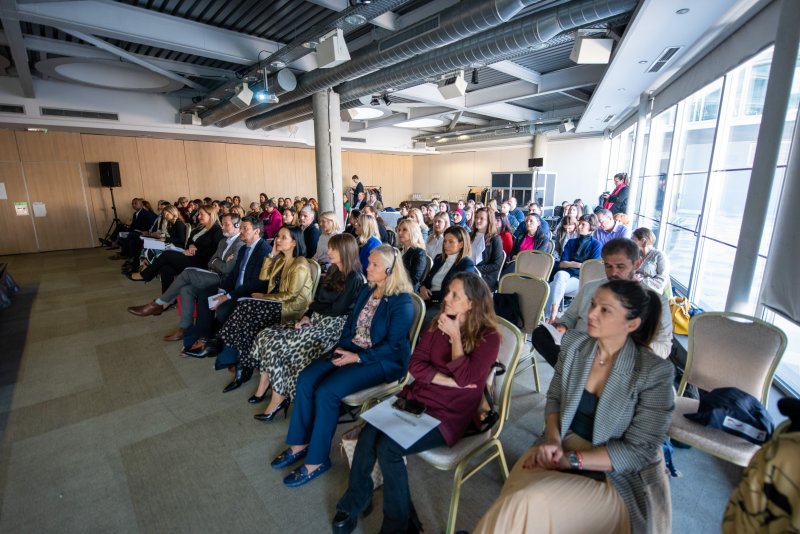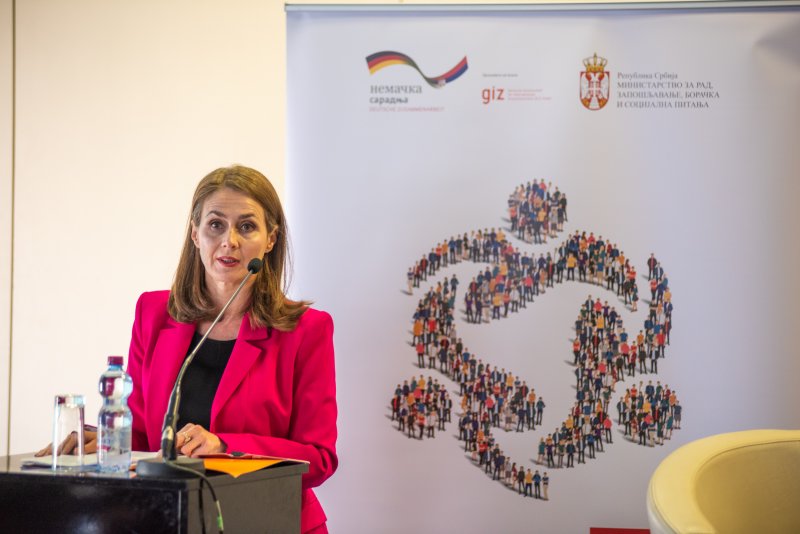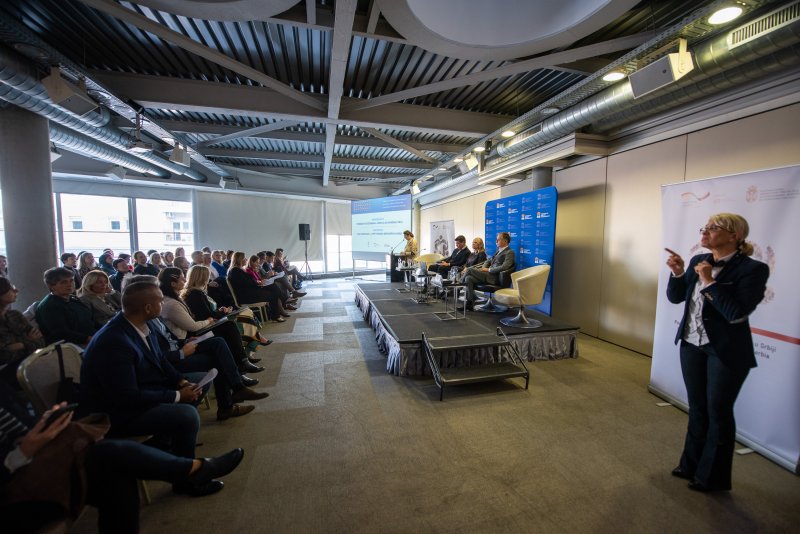The laws are clear – women and men have the same right to inheritance, and it has been like that for 80 years. However, there is a widespread belief in life, even among young people, that men should have an advantage, which is why many women still renounce their inheritance in order not to be condemned by their family and the environment, said the Commissioner for the Protection of Equality, Brankica Janković, at the opening of the conference “Fair inheritance – a step towards the empowerment of women” jointly organized by the Commissioner for the Protection of Equality and the German Development Cooperation implemented by GIZ within the project “Support to Social Inclusion in Serbia” (SIP), which aims to raise public awareness of this important topic.
At the conference, the research results conducted as part of the project on the influence of social norms on attitudes and decisions regarding property inheritance were presented, including women and men of different age categories from rural and urban areas throughout Serbia. As expected, a significantly higher percentage of women (66%) support full equality in inheritance compared to men (39%), and traditional and family values are most often cited as key motives for renouncing inheritance, as well as the moral duty and desire to preserve good family relationships.
Waiver of inheritance has significant legal consequences that women are often unaware of, said Janković, and pointed out that this is precisely why the Commissioner repeated the initiative to amend the part of the Social Protection Act that refers to the conditions for exercising the right to social financial assistance. It’s time to change the unwritten rules so that the saying “a female child is someone else’s house” becomes “a female child is a full house” because a woman has every right to say that she wants her share to leave to her children. It must not be ignored that men are also exposed to the pressure of social and cultural norms and are also expected to sometimes act contrary to their wishes and beliefs, stated Janković.
In his opening address, the leader of the “Support to Social Inclusion in Serbia” project, Michael Engel, said that including vulnerable groups, especially women, is one of the goals of the German Development Cooperation. Through the project, we support various institutional partners and partners from civil society to change the practice of inheritance, which often does not work in favor of women. In this regard, we supported raising awareness on this issue, conducting a comprehensive survey on the perception of this problem in the general public, and making recommendations for revising relevant legislative and strategic documents. It is definitely a multi-stakeholder initiative.
State Secretary in the Ministry of Human and Minority Rights and Social Dialogue, Stana Božović, spoke at the conference, as did Professor Ivana Krstić, Vladimir Pejić, and Marko Milanović, who presented the analysis of the legal framework and the research results.
PHOTO: Miodrag Mitja Bogdanović for GIZ
